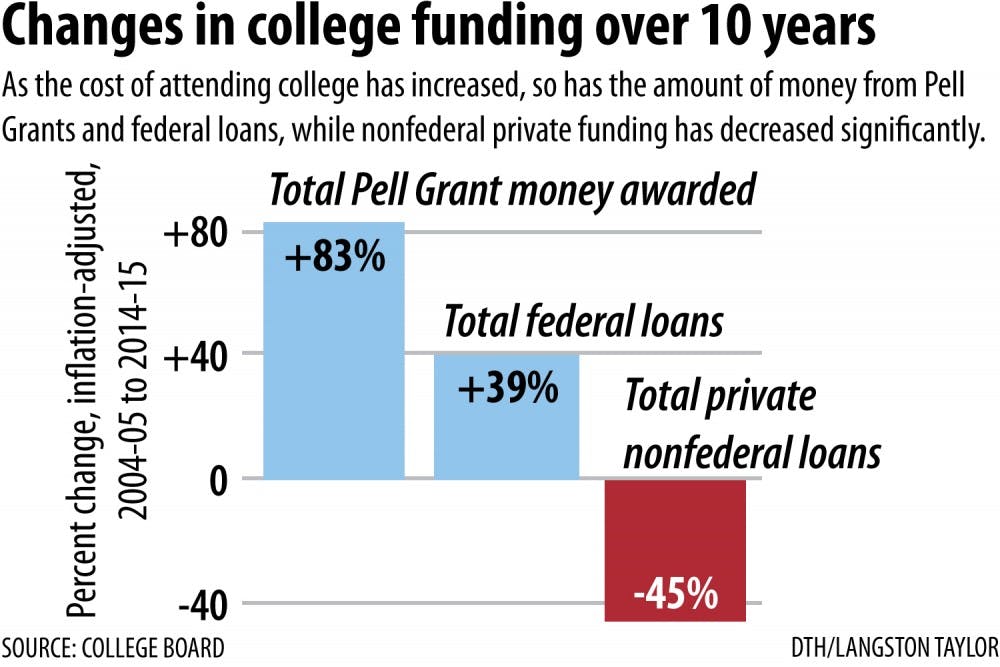The College Board released its annual Trends in Higher Education report this week, which outlined the rising cost of college tuition and the importance of financial aid. Staff Writer Anica Midthun sat down with Eric Johnson, a spokesperson for UNC’s financial aid office, to talk about the report’s takeaways and how these costs are affecting students and the future of higher education.
The Daily Tar Heel: Why do these reports matter to students, and what are the usual responses from students and families?
Eric Johnson: The reports matters for students because it reflects the reality of rising college costs, and so I think they are valuable because they focus attention on what is clearly a public policy concern.
I don’t think that most students and families look closely at these sort of reports. I think they are worried about college costs, and I think they pay attention to how much it is going to cost to go to the schools they are interested in. The value of these reports are less of an individual tool and more of a way to focus public attention on a problem that is so prevalent.
DTH: Does UNC-Chapel Hill suffer from the same rising costs that other schools do?
EJ: Yes, absolutely. The 10-year tuition and fee report from 2003-04 to 2013-14 shows that the cost of Chapel Hill tuition rose 105 percent. So at a time when most family’s incomes have not risen that much, college costs are continuing to rise.
DTH: Where do these increased costs stem from?
EJ: At least for public institutions, a significant rise has come from public divestment in higher education. The state used to pick up a much larger chunk of what it used to cost to run a university, and instead of getting cheaper, universities have shifted the cost to students and families.
DTH: Do all students utilize financial aid?



